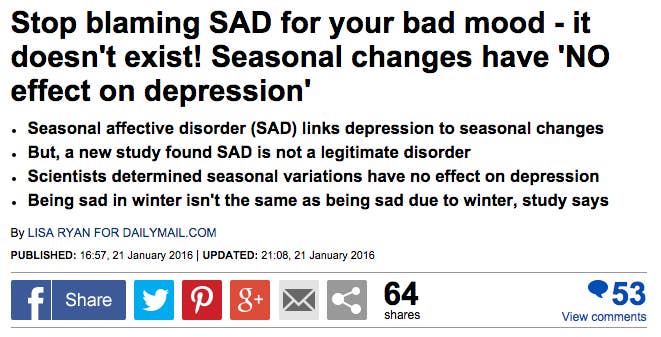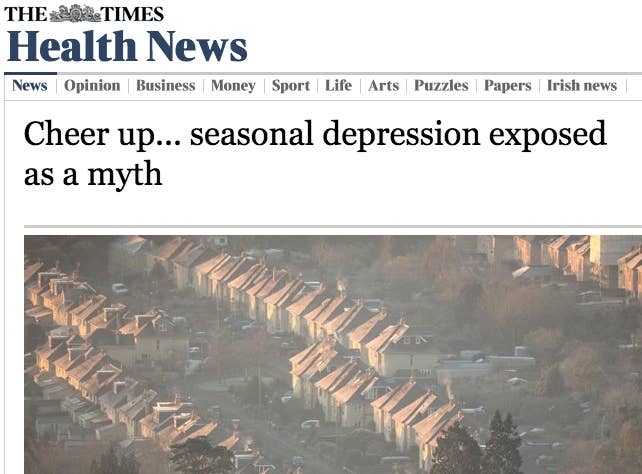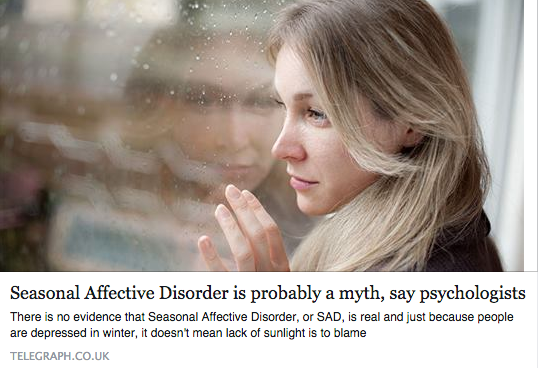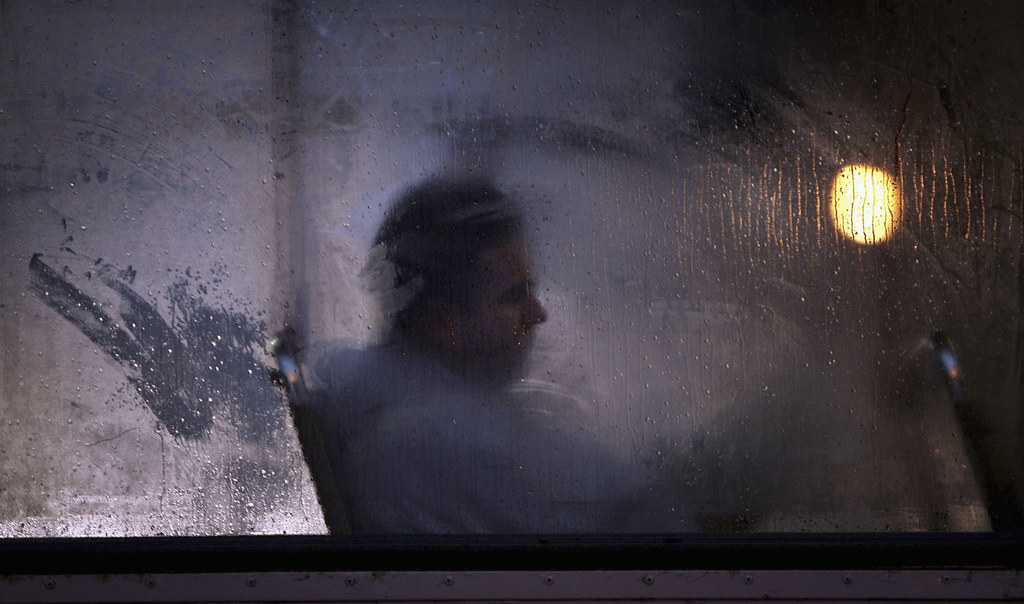Some researchers are claiming that seasonal affective disorder (SAD) – a type of depression that changes depending on seasonal patterns – might not actually be real.

The claims have lead to to sensational headlines. For example, the Daily Mail told its readers to "stop blaming SAD for their bad moods"...

...The Times told its readers to "cheer up"...

...and the Telegraph said "Seasonal Affective Disorder is probably a myth".

The study in question, published in the journal Clinical Psychological Science, aimed to investigate whether depression was related to latitude, season, or sunlight.
The authors of the study claimed that their findings showed no correlation between depression and measures of sunlight exposure, which therefore "cast serious doubt on major depression with seasonal variation as a legitimate psychiatric disorder".
They also said "being depressed during winter is not evidence that one is depressed because of winter".
Rachel Boyd, information manager at mental health charity Mind told BuzzFeed News the study is "a useful addition to our understanding of seasonal affective disorder", but warned that "we should treat its findings with caution".

For example, one thing to consider is that the data was not collected through face-to-face interviews by a trained mental health professional – instead, participants were interviewed over the telephone.
Telephone interviews might make it more likely for people to give untruthful answers because of their high anonymity, not to mention the stigma attached to mental health issues.
"People may not have answered questions truthfully, and those with depression or SAD may not have answered the phone," the NHS warned.
Most people are affected by the change in seasons, but for people who experience the disorder, seasonal changes can have a significant impact on their day-to-day lives, Boyd said.


"In the UK seasonal affective disorder is still very much a recognised diagnosis and there is a large evidence base that suggests a link between symptoms of depression and fewer hours of daylight," she said.
"It is normal to feel more cheerful and energetic when the sun is shining and the days are longer, or to find that you eat more or sleep longer in winter.
"However, if you experience SAD, the change in seasons will have a much greater effect on your mood and energy levels, and lead to symptoms of depression that have a significant impact on your day-to-day life."
"Read the details of a scientific study, or look at good scientific reporting, don't just believe headlines," Jenny Scott-Thompson spokesperson for the UK's Seasonal Affective Disorder Association told BuzzFeed News.
"Extreme SAD is rarer, and this study shows that the milder winter blues may have less of an effect on the general population than previously thought.
"But we can safely say that things like getting outside for a walk in the winter are still a good idea."
It's important to acknowledge that many people living with depression and seasonal affective disorder will experience stigma and can feel like they're not taken seriously or their experiences are dismissed, Boyd said.
"For many people and particularly for people with a diagnosis of SAD, particular times of year can be really difficult. It's important that people with SAD receive the treatment and support suited to their diagnosis.
"If you are concerned about SAD, it is important that you let someone you trust know, whether it is a friend or family member or your GP."
